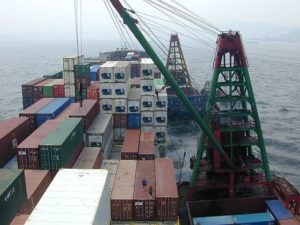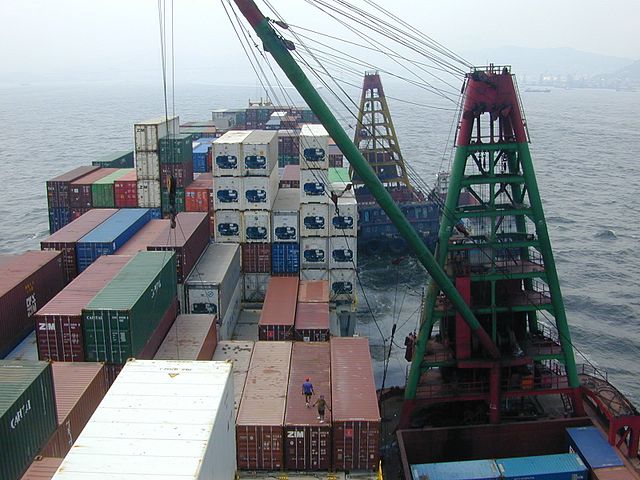 If the tariff situation between the U.S. and other economies including China worsens, it will have a negative impact on ocean freight volumes and rates, according to a new analysis from Xeneta.
If the tariff situation between the U.S. and other economies including China worsens, it will have a negative impact on ocean freight volumes and rates, according to a new analysis from Xeneta.
The global sea freight market intelligence service analyzed the issues that could arise should the U.S. push through with a more aggressive import tariff policy against China and other economies it trades with.
On U.S.-imposed steel tariffs, the steel covered (primarily hot rolled, cold rolled, and galvanized coils and sheets) is shipped break-bulk, and not in containers, so there will be no effect on box rates, said Xeneta.
Additionally, on March 22, U.S. President Donald Trump announced waivers for South Korea, the EU, Brazil, Australia, and Argentina, in addition to the already announced possible waivers for Mexico and Canada if they agree to renegotiate NAFTA.
For tariffs on aluminum, the product is shipped primarily in containers, and Xeneta believes there will be no waivers except for those announced for Canada and Mexico. In 2017, the biggest shippers of aluminum to the United States are Canada, Russia, UAE, China, Mexico, and Bahrain.
In this situation, Xeneta said, the 10% import tariff “effectively will shut any metal other than Mexican and Canadian out of the American market.”
Xeneta also assessed the effect on box rates and volumes of the aluminum tariffs, and forecasts that “volume from the UAE (Dubai Aluminium, Bahrain Aluminium), and the EU ports from which Russian metal ships will be affected. Rates should drop shortly after the tariffs are finalized.”
The report added: “The tariffs are only suspended until May 1; if trade negotiations are not resolved by that date, then White House has suggested that it may impose quotas on metal imports from those countries at any point.”
On the effect of the trade disputes on U.S. outbound rates, Xeneta said that other than China, no country has announced specific American items to be targeted with penalty tariffs, although the EU has said it is looking sharply at Harley Davidson motorcycles, tobacco products, and Kentucky Bourbon.
“Five of the top 15 suppliers of aluminum to the US are also in the top tier of America’s export partners: China, Japan, Germany, France, and India, so rates for outbound USWC-Gulf-EC may drop as each country announces the specifics of its own trade barriers imposed against American goods,” said Xeneta.
Meanwhile, Trump’s announcement of US$60 billion in tariffs against currently unnamed Chinese products and Chinese investment into the United States could affect electronic goods, apparel, shoes, and the myriad of consumer goods found in popular dollar-store chains.
The Chinese response was to publish a list of 138 items they’re targeting, including such large-volume container-shipped items as pork, wine, fruit, nuts, and recycled aluminum.
The Chinese authorities also reminded the U.S. that the proposed ban on all U.S. export recyclables (various grades of waste paper, car-truck batteries, copper scrap, plastics, etc.) has not been implemented, but that could change quickly.
“None of this is helpful to either the Chinese or American economies or the carriers moving goods to-from China and the United States,” said the analysis.
“If the US-China spat gets serious, then shipping volumes will suffer, and the only thing that will fill empty containers is cargo snaked away from another carrier by offering a cheaper rate.”
“Any reduction in total volume, regardless of commodity, will most likely lower rates as carriers will fight to fill their capacity by reducing rates,” said the report.
Photo: Buonasera





